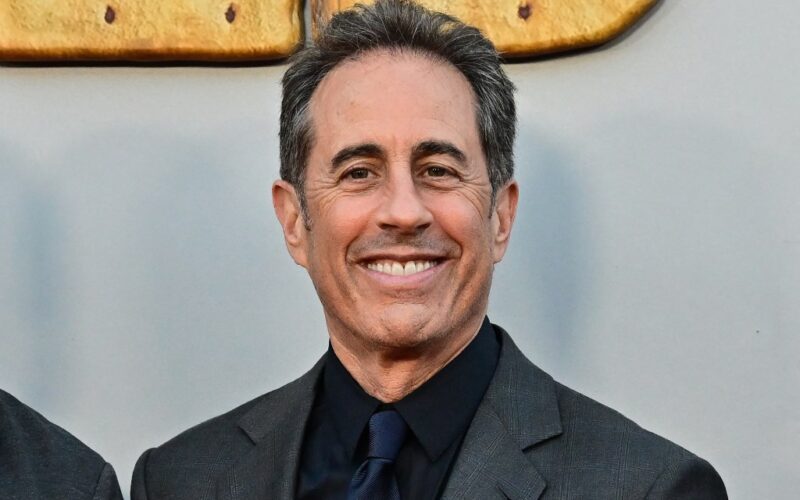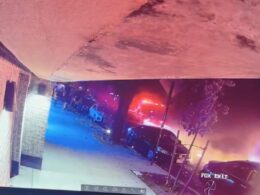Jerry Seinfeld is right about the similarities between “Free Palestine” protesters and the Ku Klux Klan. In fact, the points of comparison are stronger than he realizes.
Speaking at Duke University this week, Seinfeld said: “ ‘Free Palestine,’ to me, is just — you’re afraid to say you don’t like Jews. Just say you don’t like Jews. By saying ‘Free Palestine,’ you’re not admitting what you really think — actually, compared to the Ku Klux Klan, I’m actually thinking the Klan is actually a little better here because they come right out and say, ‘We don’t like Blacks, we don’t like Jews.’ OK, that’s honest.”
One similarity between the two movements, which Seinfeld emphasized, is their antisemitism. He correctly noted that many Hamas supporters hide behind slogans that mask their antisemitism, such as “Free Palestine.”
In plain English, “Free Palestine” means “Destroy Israel.” And surely advocating the mass murder of millions of Israeli Jews qualifies as antisemitism.
Many pro-Hamas extremists have openly expressed antisemitism. In Times Square and at George Washington University, protesters have brandished Nazi swastikas. Outside a New Jersey synagogue, they yelled “Go back to Europe!” at congregants. A sign reading “F--k the Jews” was displayed outside a Philadelphia bar, and those same ugly words were shouted at Jewish students in a Berkeley public school. A banner with the slogan “White Supremacist Zionist” was drafted in front of the home of a Jewish official of the Brooklyn Museum.
When Hamas supporters have daubed hostile slogans or set fires at synagogues, kosher restaurants, or other Jewish institutions, their choice of target was an expression of antisemitism no different from the Klan’s violent hatred.
Another strong similarity between the Hamas supporters and the KKK, not mentioned by Seinfeld, is that members of both movements try to conceal their identity — Klansmen behind hoods, Hamas supporters behind keffiyehs. Both do it to avoid facing justice for their crimes.
In the Mideast, Arab men wear the keffiyeh scarf with its sides hanging loose, the way Yasir Arafat did. However, Palestinian Arab extremists throwing firebombs and rocks at Israeli Jews often wrap their keffiyehs around their faces, hoping Israeli police won’t be able to identify them.
For Hamas supporters in America, wearing keffiyehs wrapped around their faces serves a dual purpose — to mimic the violent Palestinians they admire, and to avoid arrest for trespassing, vandalism, or assaulting Jewish passersby.
There is another important similarity between the Hamas backers and the Klan: their fondness for lynching. The Klan and its supporters lynched thousands of innocent African-Americans from the late 1800s through the mid-1900s.
Hamas cheerleaders in the U.S. regularly shout their affection for the Intifadas, the mass Palestinian Arab violence against Israelis. One of the most infamous episodes of the Second Intifada was the lynching of two young Israelis who took a wrong turn and drove into Ramallah, the capital of the Palestinian Authority, in October 2000.
A Palestinian Arab mob beat the two men to death and mutilated their bodies. In a photograph seen around the world, one of the killers proudly waved his blood-drenched hands to a cheering crowd.
Seinfeld is absolutely right to denounce the antisemitism of those who call for another “Intifada.”
Seinfeld actually is following in the footsteps of some of America’s most famous comedians—who likewise got serious and raised their voices when Jews were under attack in the 1940s.
As the Holocaust raged, a group of U.S activists known as the Emergency Committee to Save the Jewish People of Europe (known as the Bergson Group) organized rallies and lobbied the Roosevelt administration to rescue Jewish refugees.
The committee’s efforts were boosted by the endorsements it received from entertainers — in those days, like today, people paid attention when celebrities stepped off the stage and spoke out on the issues of the day.
Among those who lent their names to the committee’s newspaper ads or performed in its fundraisers were some of the titans of comedy, including Bob Hope, Groucho Marx, the Three Stooges, Jimmy Durante, and Eddie Cantor.
And when five Arab armies sought to annihilate the newborn state of Israel in 1948, Sid Caesar, Carl Reiner, Phil Silvers, and Jerry Lewis helped the committee raise funds and rally political support for the besieged Jewish state.
Seinfeld has joined the illustrious roster of comedians who know when it’s time to get serious and raise their voices against antisemitism.
Medoff is director of The David S. Wyman Institute for Holocaust Studies and author the new book “The Road to October 7: Hamas, the Holocaust, and the Eternal War Against the Jews.”








